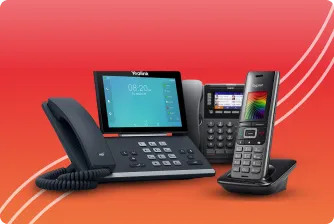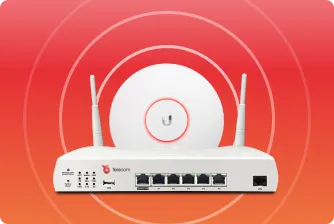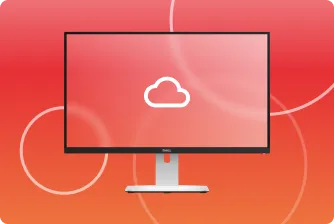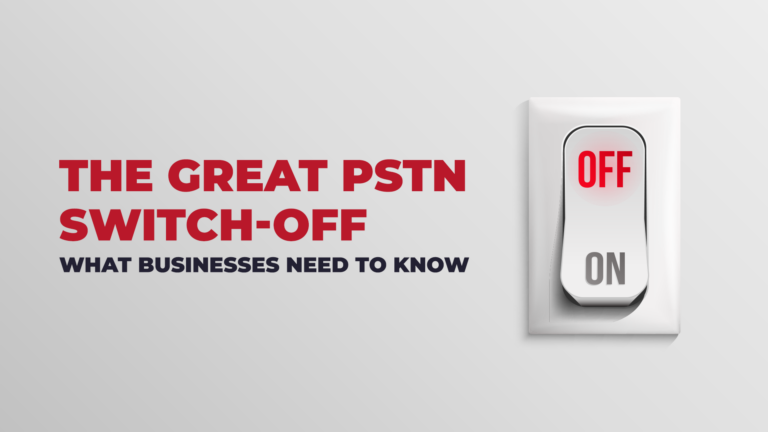In today’s digital age, businesses are constantly seeking ways to improve their communication infrastructure to meet the demands of a rapidly evolving world. Enter 5G technology, the fifth-generation mobile network that promises to revolutionize the way we communicate and connect with one another. 5G technology has been described as a game-changer for businesses across various sectors due to its unparalleled speed, bandwidth, and reliability. According to a report by the GSMA, by 2025, there will be 1.2 billion 5G connections worldwide, with networks covering one-third of the global population.
As per industry expert, Mohit Agrawal, the Founder of Telecoms Industry Association, “5G is set to enable unprecedented levels of innovation and growth across industries, from healthcare to manufacturing to finance.” The potential for 5G technology to improve business operations and enhance customer experiences is vast. With 5G, businesses can communicate and share information at lightning-fast speeds, allowing for increased productivity, efficiency, and cost savings.
Furthermore, 5G technology’s low latency means that businesses can integrate emerging technologies such as virtual reality, augmented reality, and the Internet of Things (IoT) seamlessly. This integration will enable companies to leverage the full potential of these technologies to enhance customer experiences, increase employee engagement, and drive revenue growth.
However, the adoption of 5G technology is not without its challenges. The cost of implementing an infrastructure, security concerns, and regulatory issues are just a few of the obstacles that businesses must navigate. Nevertheless, the potential benefits of 5G technology in business communications are immense, and as such, the future looks promising. In the words of John Legere, the CEO of T-Mobile, “5G is not just about making phones faster. It’s about creating a whole new ecosystem that will impact almost every aspect of our lives.”
Advantages Of 5G Technology
5G technology has several advantages that make it an ideal option for businesses looking to improve their communication infrastructure. One of the primary advantages of 5G is its enhanced network speed. According to a report by the GSMA, 5G networks are expected to be up to 100 times faster than 4G, with speeds of up to 20 Gbps. This enhanced speed means that businesses can communicate and share information at lightning-fast speeds, enabling increased productivity, efficiency, and cost savings.
Another advantage of 5G technology is its increased bandwidth. 5G networks can support up to 1 million devices per square kilometre, compared to 4G networks, which can support up to 100,000 devices per square kilometre. This increased bandwidth means that businesses can connect more devices and transmit larger amounts of data simultaneously, enabling real-time communication and collaboration.
Additionally, 5G technology’s low latency is a significant advantage for businesses. Latency refers to the time it takes for data to be transmitted from one device to another. With 5G, latency is reduced to just a few milliseconds, making it ideal for applications that require real-time communication, such as video conferencing, remote surgeries, and autonomous vehicles.
According to industry expert, Peter Linder, Head of 5G Marketing for Ericsson, “5G will transform businesses by enabling new use cases and applications that were previously impossible or impractical.” The availability of innovative business applications is yet another advantage of 5G technology. With 5G, businesses can leverage emerging technologies such as virtual reality, augmented reality, and the Internet of Things (IoT) to enhance customer experiences, increase employee engagement, and drive revenue growth.
In summary, 5G technology offers several advantages for businesses seeking to improve their communication infrastructure. Its enhanced network speed, increased bandwidth, low latency, and availability of innovative business applications make it an ideal option for businesses looking to stay ahead of the curve. As industry expert Peter Linder states, “5G is not just an evolution of mobile technology. It’s a revolution that will transform businesses and industries for years to come.”
Impact of 5G on Different Industries
The impact of 5G technology on various industries cannot be understated. Its high-speed connectivity, low latency, and increased bandwidth have the potential to transform the way businesses operate across various sectors. One such industry is healthcare, where 5G technology can enable telemedicine, remote surgeries, and real-time monitoring of patients. For example, in China, doctors used 5G technology to perform the world’s first remote brain surgery on a Parkinson’s patient, with the surgeon located over 1,800 miles away.
The manufacturing industry is another sector that can benefit significantly from 5G technology. With 5G, manufacturers can improve their supply chain management, optimize production processes, and enhance their quality control procedures. For instance, 5G technology can enable real-time tracking of inventory and assets, reducing the risk of lost or misplaced items. Similarly, manufacturers can use 5G to implement machine-to-machine (M2M) communication, allowing machines to communicate with one another to optimize production processes.
The retail industry is also set to experience a significant impact from 5G technology. With 5G, retailers can provide an enhanced in-store experience to customers, with augmented reality (AR) and virtual reality (VR) applications. For example, with AR and VR, customers can try on clothes virtually before making a purchase, reducing the need for physical changing rooms. Additionally, 5G technology can enable real-time inventory management, reducing the risk of stock shortages and enabling more efficient stock replenishment.
Finally, the finance industry can also benefit significantly from 5G technology. With 5G, banks and financial institutions can enhance their digital banking capabilities, improving the customer experience and enabling more efficient and secure transactions. For example, 5G can enable biometric authentication for online transactions, reducing the risk of fraud and increasing security. Additionally, 5G can enable real-time analytics and data processing, enabling banks to make more informed decisions and improve their risk management processes.
In conclusion, 5G technology is set to have a significant impact on various industries, enabling new use cases and applications that were previously impossible or impractical. From healthcare to manufacturing to retail and finance, 5G technology has the potential to transform the way businesses operate and communicate.
Challenges & Risks
Despite the numerous advantages of 5G technology, there are several challenges that businesses must overcome when adopting this technology for their communication infrastructure. One of the most significant challenges is the high cost of implementation. 5G technology requires significant investment in infrastructure, including new hardware, software, and network infrastructure, which can be expensive for businesses. According to a report by Gartner, businesses should expect to pay up to three times more for 5G network infrastructure compared to 4G.
Another challenge is the lack of widespread availability of 5G networks. Although 5G technology is rapidly expanding, not all areas have access to 5G networks, which can limit its use for businesses with a global or remote workforce. Businesses must also ensure that their existing hardware and software are compatible with 5G networks, which may require additional investment.
Another challenge is the potential cybersecurity risks that come with 5G technology. With the increased use of connected devices and the Internet of Things (IoT), businesses must ensure that their data and communication networks are secure from cyber-attacks. As the number of connected devices increases, so does the potential for security breaches, making it crucial for businesses to implement robust security protocols.
Moreover, businesses must also be prepared to adapt to the increased complexity of 5G networks. As 5G networks become more advanced, businesses will need to have specialized technical expertise and training to manage and maintain these networks.
In summary, while 5G technology offers numerous advantages for businesses, there are also several challenges that businesses must overcome when adopting this technology for their communication infrastructure. These challenges include the high cost of implementation, lack of widespread availability, potential cybersecurity risks, and increased complexity. By understanding and addressing these challenges, businesses can ensure a smooth transition to 5G technology, enabling them to leverage the benefits of this technology to improve their communication infrastructure and drive business growth.
Future of 5G In Business
The future of 5G technology in business communications is exciting, with the potential to transform the way businesses operate and communicate. As 5G networks become more widespread and affordable, businesses will be able to leverage the benefits of this technology to enhance their communication infrastructure and drive business growth. One of the most significant potential benefits of 5G technology is its ability to enable new use cases and applications that were previously impossible or impractical. For example, 5G can enable new virtual and augmented reality applications that can transform the way businesses engage with customers and employees.
Another potential benefit of 5G technology is its ability to support new technologies such as autonomous vehicles and drones. With 5G, these devices can communicate in real time, enabling more efficient and safe operation. For example, autonomous vehicles can communicate with one another and with infrastructure, enabling them to avoid accidents and reduce traffic congestion.
As 5G networks continue to evolve, businesses can also expect to see improvements in network reliability, speed, and latency. This will enable businesses to leverage new technologies such as real-time video communication, virtual and augmented reality, and other advanced applications that require high-speed connectivity and low latency.
Moreover, as businesses continue to adopt 5G technology, they will also benefit from improved efficiency and productivity. With 5G, businesses can enhance their supply chain management, optimize production processes, and enable real-time monitoring of assets and inventory. This will enable businesses to improve their decision-making processes, reduce costs, and enhance their competitive advantage.
In conclusion, the future of 5G technology in business communications is bright, with the potential to enable new use cases and applications, support new technologies, and improve efficiency and productivity. As businesses continue to adopt and leverage 5G technology, they will be able to transform the way they operate and communicate, driving business growth and success.
Conclusion
In conclusion, 5G technology has the potential to revolutionize business communications, enabling new use cases, improving efficiency, and driving business growth. With its high speed, low latency, and increased bandwidth, 5G offers numerous advantages over previous generations of cellular technology. However, the adoption of 5G technology also presents several challenges, including high implementation costs, lack of widespread availability, potential cybersecurity risks, and increased complexity.
Despite these challenges, businesses should consider investing in 5G technology to enhance their communication infrastructure and stay competitive in an increasingly digital world. By addressing these challenges and leveraging the benefits of 5G technology, businesses can enable new use cases, improve productivity, and drive business growth.
As the technology continues to evolve, businesses can expect to see further improvements in network reliability, speed, and latency. This will enable them to leverage new technologies and applications, transforming the way they operate and communicate. Ultimately, businesses that embrace 5G technology will be better positioned to succeed in the digital age, delivering better products and services to their customers and driving business growth and success.
Here at Yo, we’re all about improving the success of the businesses we deal with. So, If you are interested in learning more about improving your business development, or generally future-proofing your business – enter your contact details into the form below and we’ll be in touch with how we can help you and your business TODAY!











